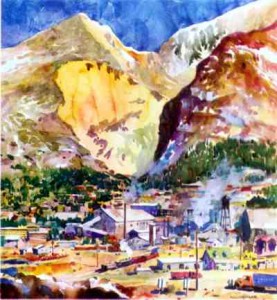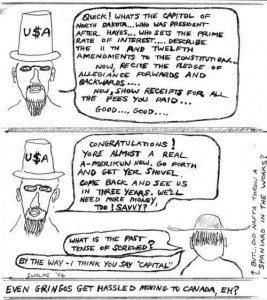Brief by Allen Best
Migration – June 2006 – Colorado Central Magazine
The Washington Post recently focused on a phenomenon that tourist towns in the West understand very well. Ed Quillen, a columnist for The Denver Post, several years ago called it “the invasion of rich people,” and it remains as good a summation as any about the process underway.
To tell the story, The Washington Post chose Jackson Hole, although the story could have easily been told about Aspen, Vail, or Telluride. Jackson’s notables include Vice President Dick Cheney, actor Harrison Ford, and World Bank president James Wolfensohn, as well as many others, lesser known but perhaps more wealthy.
The article explained how low income tax rates in the Rocky Mountains (Wyoming has zero tax) encourages rich people from coastal cities to come and build vacation homes — or first homes. With the Internet, private jets, and FedEx, it is possible for rich people to live at Jackson Hole year round while keeping an active hand in their businesses on Wall Street, or in Hollywood, or the Silicon Valley.
The story told of real-estate eccentricities of this upper crust, of people who must have custom fittings on everything. And of their considerable philanthropy, as good-cause spending has become de rigeur for social standing. And, without quite saying so, of their devotion to open space. Stated another way, they are content to see the local workforce commuting long distances, as there isn’t a lot of private land in this burgeoning economy of large, rural estates.
Brian Grubb, who heads planning for the Town of Jackson, says, “The future is locked in; it can only get richer.”
And a real estate agent, Bob Graham says, “The herd instinct is as strong with multimillionaires as it is with any two- or four-legged animal.”
In Jackson Hole, there was some umbrage to this report. Writing in the Jackson Hole News & Guide, sports columnist Michael Pearlman resented what he saw as the insinuation that “our town is little more than a tax shelter of the ultrarich and we have shed any other identity.”
He sees a lot of positive trickle-down effect: “Road cyclists and their families enjoy a well-developed pathway system, we’re getting new synthetic soccer fields, and our public skate park is about to get an upgrade,” he writes. “None of these projects would have been possible had some of the valley’s wealthy philanthropists not pulled out their checkbooks.”
But, in a way, he conceded, The Washington Post story was dead on. Increasingly, he noted, the work force is fleeing to other areas, 30 to 45 minutes away, and commuting to Jackson. Like other resort valleys, schools in Jackson have had flat enrollments, despite great increases in population growth. There are a great many 20-somethings, Latinos, ultrarich, and baby boomers and older, but GenXers and those in the middle incomes are under-represented .–Allen Best


